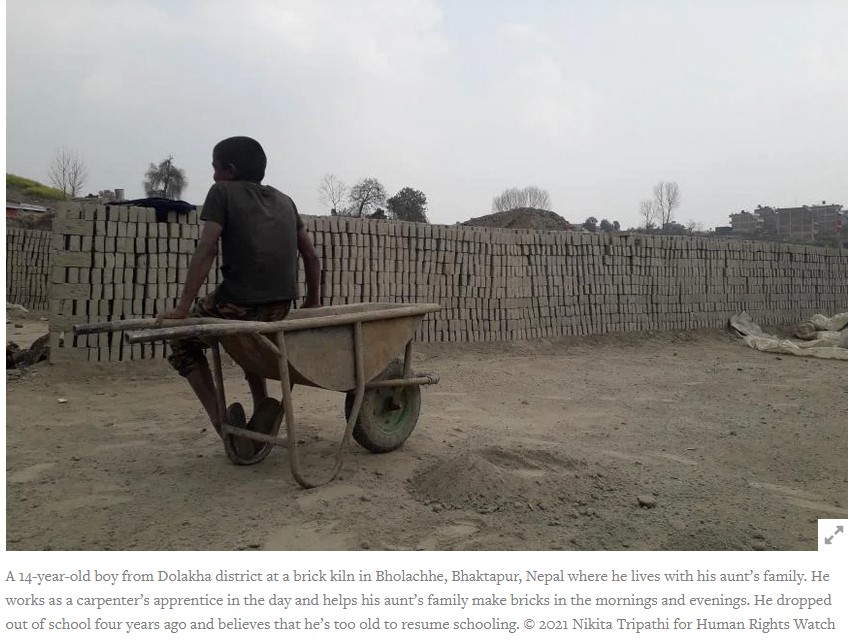Surging Child Labor Demands Government Action New Global Numbers Show Backsliding Even Before Covid-19 Pandemic
By Jo Becker
Alarmingly, these numbers pre-date the Covid-19 pandemic, which is forcing even more children into exploitative and dangerous child labor. Human Rights Watch, Friends of the Nation, and the Initiative for Social and Economic Rights recently interviewed dozens of children in Ghana, Nepal, and Uganda to document the impact of the pandemic on their lives. They told us how their parents lost jobs when businesses closed, couldn’t get to markets to sell their goods, or lost customers during lockdowns. Their schools closed, and with little or no government assistance, the children felt they had no choice but to work to help their families survive. The children worked at brick kilns, carpet factories, gold mines, stone quarries, fisheries, in construction, and in agriculture. Others sold food or goods on the street. They described working long hours for meager wages, often under dangerous conditions. One 12-year-old girl crushed rocks at a stone quarry for seven hours a day. Her salary was just US$1.11 a week, she said, but if her employer was unhappy with the size of the stones, he paid her even less.
The children worked at brick kilns, carpet factories, gold mines, stone quarries, fisheries, in construction, and in agriculture. Others sold food or goods on the street. They described working long hours for meager wages, often under dangerous conditions. One 12-year-old girl crushed rocks at a stone quarry for seven hours a day. Her salary was just US$1.11 a week, she said, but if her employer was unhappy with the size of the stones, he paid her even less.
Child labor is not an inevitable consequence of the pandemic. Many governments have successfully reduced child labor in the past by providing regular cash allowances to help families meet their basic needs without sending their children to work. But 1.3 billion children – mostly in Africa and Asia – are not covered by such programs. Scaling up cash allowances can help governments meet their international legal obligations to guarantee children an adequate standard of living, their right to education, and protection from child labor. In the grip of the Covid-19 pandemic, this powerful policy tool is more important than ever.
Human Rights Watch is a member of the Child Labor Coalition and this article appears with its permission. The article originally appeared on their web site here.

